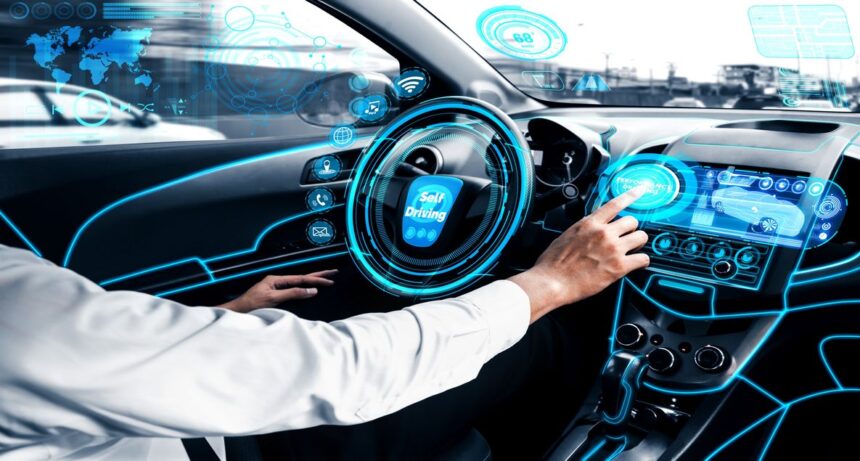The automotive industry is undergoing a technological revolution that affects how vehicles are designed, manufactured, and operated. From electric vehicles (EVs) to self-driving cars, technological advancements have transformed the industry’s landscape. Automakers are increasingly adopting artificial intelligence, quantum computing, and other cutting-edge innovations to improve safety, efficiency, and sustainability. These technologies create new business models, such as mobility-as-a-service. As automakers continue to innovate, they set the stage for a future where cars are smarter, more efficient, and more connected.
Electric Vehicles: Paving the Way for Sustainable Mobility
One of the most significant advancements in the automotive industry is the rise of electric vehicles (EVs). With growing concerns over climate change and the environmental impact of gasoline-powered vehicles, EVs have emerged as a sustainable alternative. Powered by electricity instead of fossil fuels, EVs produce zero emissions, making them a cleaner option for transportation. Companies like Tesla, Ford, and General Motors are offering models with longer ranges, faster charging times, and more affordable prices. These innovations drive consumer interest and accelerate the adoption of electric vehicles globally. However, challenges remain in expanding the EV infrastructure, particularly in terms of charging stations and battery recycling. To address these issues, automakers are partnering with governments and tech companies to create a more robust charging network and develop sustainable battery solutions.
Autonomous Vehicles: The Future of Driving
Autonomous vehicles (AVs), or self-driving cars, are another technological breakthrough that is set to revolutionize the automotive industry. With the help of artificial intelligence (AI), machine learning, and sensor technology, AVs are designed to navigate roads without human intervention. Companies like Waymo, Tesla, and Uber invest heavily in AV research and development, aiming to create vehicles that can safely and efficiently drive themselves. Autonomous vehicles have the potential to reduce accidents caused by human error, improve traffic flow, and provide mobility solutions for those unable to drive. Despite the promising potential of AVs, significant regulatory and technical hurdles remain before they can become mainstream. Ensuring the safety and reliability of self-driving systems is a top priority for manufacturers, and extensive testing is needed to refine the technology.
Quantum Computing: Transforming Vehicle Design and Manufacturing
Quantum computing is poised to make a significant impact on the automotive industry. Unlike classical computers, quantum computers can process complex computations at unprecedented speeds, enabling automakers to solve previously impossible problems. In vehicle design, quantum computing software can simulate and optimize materials, leading to lighter and more efficient car bodies. It can also be used to enhance battery performance by modeling chemical reactions at the quantum level, paving the way for longer-lasting electric vehicle batteries. In manufacturing, quantum computing can optimize production processes, reduce waste, and improve supply chain efficiency. By analyzing large datasets in real time, quantum computers can provide insights that enable manufacturers to predict equipment failures, manage resources more effectively, and reduce production costs.
Connected Cars: Enhancing Safety and Convenience
Connected cars, equipped with internet access and communication capabilities, change how vehicles interact with their environment and drivers. By leveraging technologies like 5G and the Internet of Things (IoT), connected cars can communicate with other vehicles, traffic infrastructure, and even home devices. This connectivity enhances safety by enabling vehicles to receive real-time updates on traffic conditions, weather, and potential hazards. Additionally, connected cars can provide drivers with valuable information, such as maintenance alerts and route optimization, improving the overall driving experience. Automakers are increasingly integrating connected car technology into their vehicles, offering features such as remote diagnostics, over-the-air software updates, and enhanced infotainment systems.
Advanced Manufacturing: Revolutionizing Production Processes
The automotive industry leverages advanced manufacturing technologies, such as 3D printing, robotics, and AI-powered automation, to transform production processes. 3D printing, or additive manufacturing, allows automakers to create complex parts quickly and cost-effectively, reducing the time and expense of traditional manufacturing methods. This technology is especially useful for producing prototypes, custom parts, and lightweight components, which can enhance vehicle performance and fuel efficiency. Major automakers, including BMW and Ford, are already incorporating 3D printing into their production lines, using it to produce parts for both electric and conventional vehicles. In addition to 3D printing, robotics, and AI-driven automation are streamlining production processes, improving precision, and reducing human error.
Conclusion
Advanced technologies drive innovation in vehicle design, manufacturing, and operation. From electric and autonomous vehicles to quantum computing and connected cars, these innovations are shaping the future of transportation by enhancing sustainability, safety, and efficiency. While the adoption of these technologies presents challenges, such as infrastructure development, regulatory hurdles, and cybersecurity risks, their potential to revolutionize the industry is undeniable. Automakers that embrace these advancements will be well-positioned to lead the charge in the next era of mobility. As the automotive industry continues to evolve, the integration of cutting-edge technologies will define its success and shape the future of global transportation.


